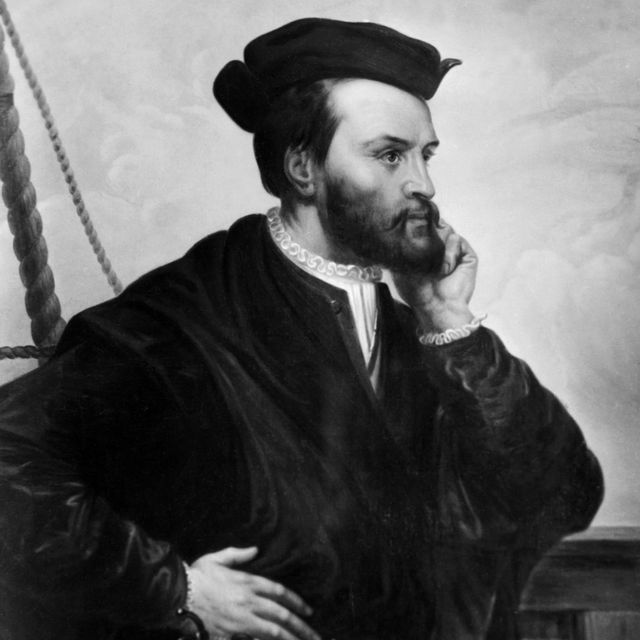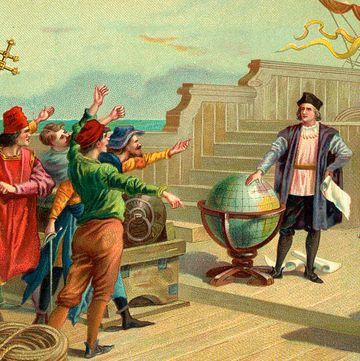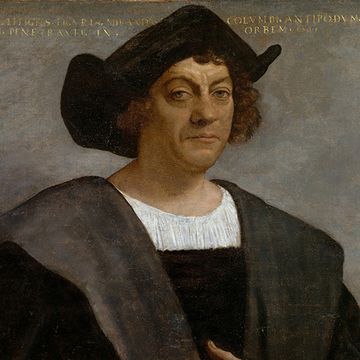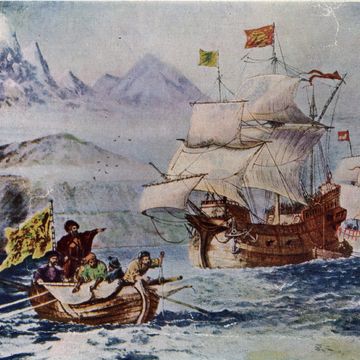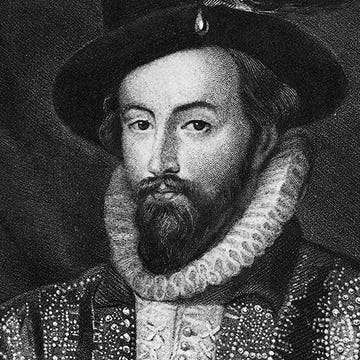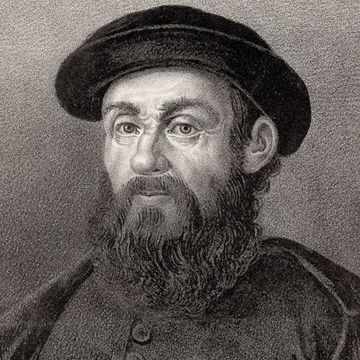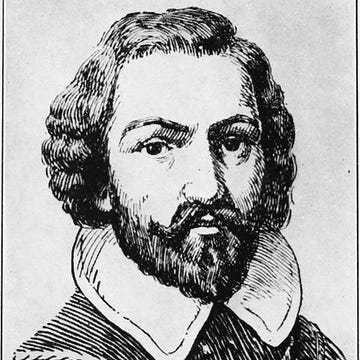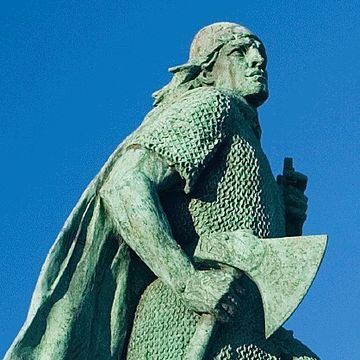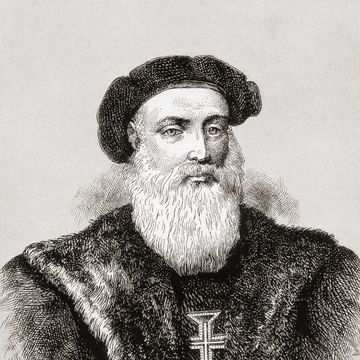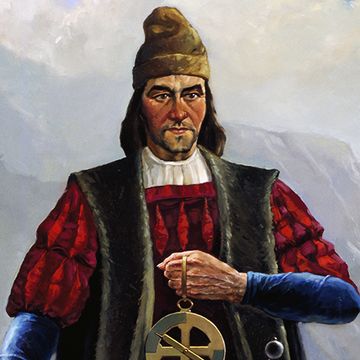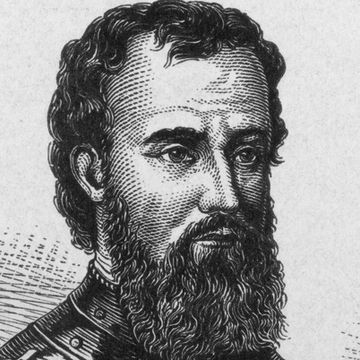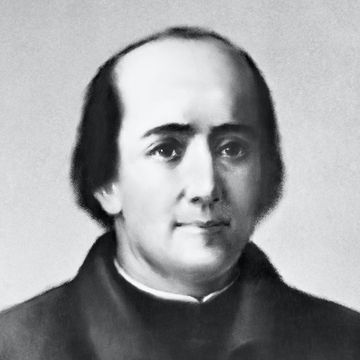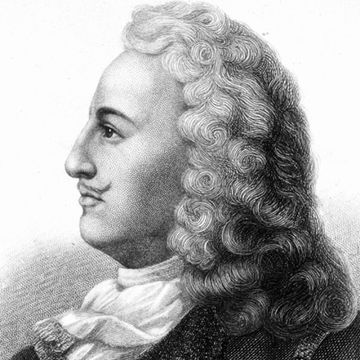(1491-1557)
Who Was Jacques Cartier?
French navigator Jacques Cartier was sent by King Francis I to the New World in search of riches and a new route to Asia in 1534. His exploration of the St. Lawrence River allowed France to lay claim to lands that would become Canada. He died in Saint-Malo in 1557.
Early Life and First Major Voyage to North America
Born in Saint-Malo, France on December 31, 1491, Cartier reportedly explored the Americas, particularly Brazil, before making three major North American voyages. In 1534, King Francis I of France sent Cartier — likely because of his previous expeditions — on a new trip to the eastern coast of North America, then called the "northern lands." On a voyage that would add him to the list of famous explorers, Cartier was to search for gold and other riches, spices, and a passage to Asia.
Cartier sailed on April 20, 1534, with two ships and 61 men, and arrived 20 days later. He explored the west coast of Newfoundland, discovered Prince Edward Island and sailed through the Gulf of St. Lawrence, past Anticosti Island.
Second Voyage
Upon returning to France, King Francis was impressed with Cartier’s report of what he had seen, so he sent the explorer back the following year, in May, with three ships and 110 men. Two Indigenous peoples Cartier had captured previously now served as guides, and he and his men navigated the St. Lawrence, as far as Quebec, and established a base.
In September, Cartier sailed to what would become Montreal and was welcomed by the Iroquois who controlled the area, hearing from them that there were other rivers that led farther west, where gold, silver, copper and spices could be found. Before they could continue, though, the harsh winter blew in, rapids made the river impassable, and Cartier and his men managed to anger the Iroquois.
So Cartier waited until spring when the river was free of ice and captured some of the Iroquois chiefs before again returning to France. Because of his hasty escape, Cartier was only able to report to the king that untold riches lay farther west and that a great river, said to be about 2,000 miles long, possibly led to Asia.
Third Voyage
In May 1541, Cartier departed on his third voyage with five ships. He had by now abandoned the idea of finding a passage to the Orient and was sent to establish a permanent settlement along the St. Lawrence River on behalf of France. A group of colonists was a few months behind him this time.
Cartier set up camp again near Quebec, and they found an abundance of what they thought were gold and diamonds. In the spring, not waiting for the colonists to arrive, Cartier abandoned the base and sailed for France. En route, he stopped at Newfoundland, where he encountered the colonists, whose leader ordered Cartier back to Quebec. Cartier, however, had other plans; instead of heading to Quebec, he sneaked away during the night and returned to France.
There, his "gold" and "diamonds" were found to be worthless, and the colonists abandoned plans to found a settlement, returning to France after experiencing their first bitter winter. After these setbacks, France didn’t show any interest in these new lands for half a century, and Cartier’s career as a state-funded explorer came to an end. While credited with the exploration of the St. Lawrence region, Cartier's reputation has been tarnished by his dealings with the Iroquois and abandonment of the incoming colonists as he fled the New World.
Death
Cartier died on September 1, 1557, in Saint-Malo, France.
QUICK FACTS
- Name: Jacques Cartier
- Birth Year: 1491
- Birth date: December 31, 1491
- Birth City: Saint-Malo, Brittany
- Birth Country: France
- Gender: Male
- Best Known For: French explorer Jacques Cartier is known chiefly for exploring the St. Lawrence River and giving Canada its name.
- Astrological Sign: Capricorn
- Nacionalities
- French
- Death Year: 1557
- Death date: September 1, 1557
- Death City: Saint-Malo, Brittany
- Death Country: France
Fact Check
We strive for accuracy and fairness. If you see something that doesn't look right, contact us!
QUOTES
- If the soil were as good as the harbors, it would be a blessing.
- [T]he land should not be called the New Land, being composed of stones and horrible rugged rocks; for along the whole of the north shore I did not see one cartload of earth and yet I landed in many places.
- Out of 110 that we were, not 10 were well enough to help the others, a thing pitiful to see.
- Today was our first day at sea. The weather was good, no clouds at the horizon and we are praying for a smooth sail.
- We set sail again trying to discover more wonders of this new world.
- Today I did something great for my country. We have taken over the land. Long live the King of France!
- I'm anxious to see what lies ahead. Every day we are getting deeper and deeper inside the continent, which increases my curiosity.
- Today I have completed my second voyage, which I can say had thought me a lot about how different things are in this world and how people start building up communities according to their common beliefs.
- The world is big and still hiding a lot.
- There arose such stormy and raging winds against us that we were constrained to come to the place again from whence we were come.
- I am inclined to believe that this is the land God gave to Cain.
